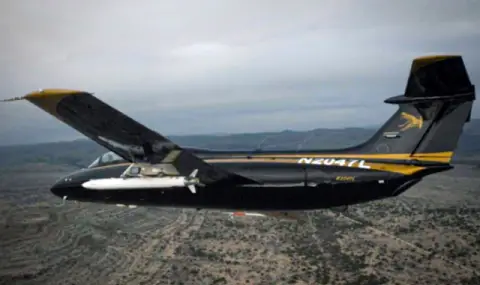Venus Aerospace demonstrated the first flight of a rocket powered rotary detonation engine (RDRE) drone. The tests took place in February 2024, but were only now publicly announced. Previously, the company demonstrated the long-term operation of its own RDRE unit on a bench, which is important for the creation of a hypersonic aircraft or a space shuttle.
An unmanned vehicle in the form of a cruise missile weighing 140 kg and 2.4 meters long was dropped from an aircraft at a height of 3,700 m, powered by a hydrogen peroxide engine, the drone reached a speed of Mach 0.9 and flew 16.1 km.
The engine reportedly operated at 80% thrust, so the goal was not to break the Mach 1 mark. Acceleration to speeds above Mach 1 would be accomplished on subsequent launches with the inclusion of a rocket rotary detonation engine, which this time was simply present on board the drone.
„Using an air launch platform and cruise missile configuration allows us to cheaply and quickly conduct minimal testing of our RDRE as a hypersonic propulsion engine,” said the company's CTO and co-founder Andrew Dougalby. “The team works professionally and has a huge amount of data to connect and configure the system for the next flight.“
The rotary detonation rocket engine has a number of advantages over traditional chemical propellant engines. It usually consists of two cylinders placed inside each other. The fuel is injected into the wall between them and ignited - this can be both a continuous burning mode and a pulsed one.
After ignition, a “fire tornado” – blast wave shock front, which due to the confined space creates a more directed energy. In addition, the RDRE engine will be easier to maintain and can save up to 15% fuel.
In the future, Venus Aerospace hopes to create a hypersonic spacecraft, or plane, that can accelerate to Mach 9 and take passengers anywhere on Earth in just about an hour. But that definitely won't happen tomorrow or the day after. In the meantime, check out the video of the drone flying with this promising engine.
